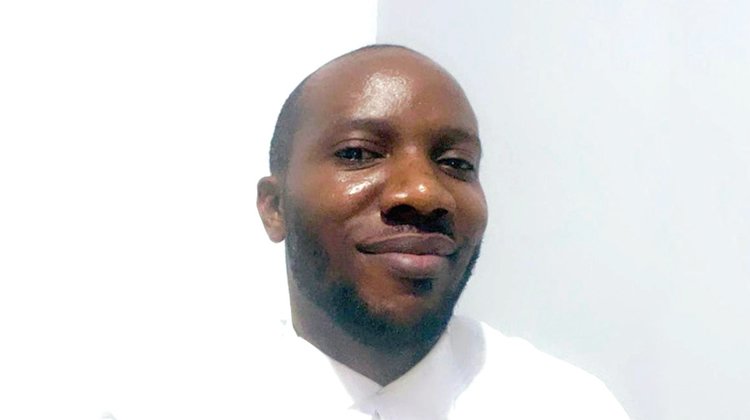
Human rights lawyer, Inibehe Effiong, who was jailed for contempt by the Chief Judge of Akwa Ibom State, Justice Ekaette Obot, in controversial circumstances on July 27, regained his freedom on Friday. He speaks with GODFREY GEORGE about his one-month prison experience
Would you like to recount what your first day was like in detention in the Ikot Ekpene Custodial Facility in Akwa Ibom state?
By the time I arrived, I was not perturbed by my sentence in any way. They first took me to the Uyo Correctional Facility but they did not admit me. They referred me to Ikot Ekpene, and I was supposed to be there for two weeks. When I got to Ikot-Ekpene, I was admitted and immediately confronted with the reality of the abominable neglect of the correctional centre in the country. Even though the Ikot Ekpene Prisons building is relatively new, as it was recently renovated by former Governor Godswill Akpabio, life there is still very horrible.
Most Nigerians may not know how bad the condition is until they experience it. I had to remove my shoes when I was admitted. They took my properties and took account of them. Then, I had to be shown the cell where I was going to spend two weeks. The custodial centre in Ikot-Ekpene is terribly and disgustingly congested. Inmates live basically like animals. There are people who do not even have a space to lie. They sit with their legs tied and others sit close to them. That is the condition that some of them have had to live for years since their sentence. I was so enraged by what looked like an attempt to replicate the Nazi concentration. But then, I was told there was what they called the ‘special cell’, some kind of ‘privileged cell’ at the Ikot Ekpene Custodial Centre. They told me that I would either adjust to the very dehumanising condition I find myself in the regular cell or I had to pay for a space in the so-called special cell.
How much did it cost?
The officers said it would cost me N50, 000. I knew I had just two weeks to stay, but I had to pay that money so I could get a space. There were three of us in the room. There was no bed; there was just a small mattress. I adjusted. As I said, I had always mentally prepared for incarceration. So, we had to sleep on the floor. There was no net for me to shield myself from mosquitoes. I had to share the toilet with other people. It wasn’t palatable. But that is what people even consider to be one of the best in the country. I don’t think that is even fit for any inmate in this country to be kept.
How did you feed?
I never for one day ate what they served as food. For me, those meals were not fit for human consumption. Saying it was bad is making light of the situation. Even saying it was terrible is an understatement. What the inmates there eat is not even something befitting for dogs to eat, and I say that with an open mind. Every day, because my detention became like a sort of pilgrimage at the custodial centre, people would troop in from all parts of the country to see me. Every day, I had a retinue of visitors who I had to spend some time with. They had given some kind of special instructions or rules to the warders, which is a way of telling them that I was ‘a high-profile inmate whose life had to be monitored’. I couldn’t make calls like the other inmates. I was monitored tooth and nail. I didn’t have a problem with that. I cooperated with the authorities and kept to all the rules. Whatever they did was them trying to make me not to feel the reality of what was happening. When the date of my transfer came, August 10, 2022, that was the day that they decided to torture me.
How do you mean?
So, that morning, I prepared myself for the transfer. I had given my clothes to the dry cleaner, who is an inmate, and had prepared myself. I had washed my things. All I needed was the time so I could pack my things and begin to freshen up. But some man came that morning and told me to prepare because I was going to court. I thought there was a development in my case that I was not aware of. I disputed it but he insisted. I had to follow the inmate who worked with the records to see what was happening. They later apologised, saying it was not actually a court appearance but a transfer to Uyo. I insisted on speaking to the Assistant Comptroller of Customs of that facility. When he came, he behaved differently. He was belligerent. He shouted at me, asking why I was not dressed for the transfer. He became very hostile. I couldn’t say anything. I simply stood up and went inside and my cellmates had to help me start packing. Since people brought a lot of things for me, it was difficult for me to start packing. That took a while because I wasn’t given sufficient notice. I was about to freshen up when some officer came and told me that I was wasting time. I told him that I had to freshen up first since I was not running. The Assistant Comptroller of Corrections came in with a full squad of his men and they started shouting at me. I got really upset and I told them that I was not a criminal. If they wanted to transfer me, I should be given some decency, some time to arrange myself.
The problem with the correctional centre is that they do not believe that inmates have rights. For them, you are at their mercy. So, when you want to speak in a manner that is suggestive that they are treating you unfairly, they find that extremely offensive. At that point, it no longer mattered to them whoever I was outside there. The man later went out and ordered some crazy dude who came in and handcuffed me. One other heavily-built officer grabbed me by the neck, and I could barely breathe. A certain Enobong Gideon Eyoren was the officer who led the torture. He was a two-star officer. The young man took it very personally. He acted so very maliciously. He said all sorts of things and then he took me outside the van even though there was a space to put me inside. It was drizzling. They didn’t accord me that courtesy for me to sit inside the van. The other inmate, who they were taking to meet up the court time, Moses Armstrong, was inside the van, but they lifted me up and flung me inside the van and chained me to the back of the van with handcuffs and drove me like a dog to Uyo. The torture didn’t end there. When I got to Uyo, this same officer started pushing and battering me. I kept wondering what was going on. When I got in, he ordered me to sit on the floor. They don’t understand that I have rights as a citizen and should be respected and treated with decency.
Eyoren became very violent and threatened to finish me if I resisted. Imagine if I put up a physical resistance! That same young man, I later got to understand, had been implicated in many crimes. That is the character that was an officer with the correctional service. I was not surprised that he was the one who was assigned to supervise my torture.
Is it true that they shaved your hair and beard?
Of course, they did. They forcefully shaved my hair and beard despite my objections. It was a continuation of what started in Ikot-Ekpene. Throughout my stay in Ikot-Ekpene, I had my beards with me. Inmates keep beards. It is even very silly to say this is standard practice. The inmates in the correctional service care for themselves. Nobody pays for anything for them, so I knew it (hair shaving) was malicious. Uduak Frank Akpan (Iniobong Umoren’s killer), who was convicted a day before I was sentenced, had his beard the way he wanted to keep it. This was someone who was convicted of murder. My shaving was malicious and deliberate. They wanted to do something that would hurt me. They did not just shave me, they shaved me completely. If you see my picture, you will see how I look so different. I was almost shaved bald. They dehumanised me. When the information got out, they started trying to be apologetic inside while denying the gravity of the action and not punishing the culprit.
What was the experience for you mentally?
I had a sound sleep. I was not bothered. I knew what the Honourable Chief Judge did was a miscarriage of justice. So, I was not bothered about my incarceration. Every day when I woke up, I went to the chapel, read my Bible and a copy of Nelson Mandela’s Long Walk to Freedom, which I finished before my incarceration was over. I interacted with inmates who had needs for counseling. I helped those who needed financial support. In the last period of my stay in Uyo, I offered myself up to the inmates as much as I could.
Did any of the inmates recognise you?
Almost everyone there knew me. There was barely anybody who did not know who I was.
The Attorney General of Akwa Ibom State, Uko Udom (SAN), justified your imprisonment, saying the judge had all the power to decide what was contemptuous in a court. How did you receive that?
Anybody who is defending my incarceration, with due respect to the person, is either speaking out of ignorance or out of personal vendetta or gross disregard for the truth. Nothing justifies my incarceration. I did not commit any contempt of court. There was nothing in my conduct that was contemptuous either in speech or in action. I treated the learned Chief Judge with respect, and those claims that I banged the tables and raised my voice are mere fabrications. They didn’t happen. I will say this before any judge and any court in this country. They didn’t witness what transpired in court. I was addressing the court on the propriety of inviting armed men into the courtroom, and My Lord decided to commit me to prison for that. That was all that happened. Let us even assume that I conducted myself badly, shouldn’t I be accorded fair hearing? Can you convict someone for contempt without a trial? You cannot have a trial without a charge. There was no charge that was prepared against me. No charge was read to me. I was not afforded an opportunity to take a plea or even say anything. I wasn’t asked to enter a dock. So, what exactly are they defending?
Do you plan to take legal actions about this case?
There are a series of legal actions that had been taken while I was in prison. Others will be vigorously pursued now that I have been released, particularly my appeal against the sentence. Whatever legal steps that need to be taken will be taken. I will not shy away from this responsibility. I am very grateful to the Nigerian Bar Association led by Mr Olumide Akpata and the First Vice President who came to visit me. They have been very supportive, and for that I am eternally grateful.





